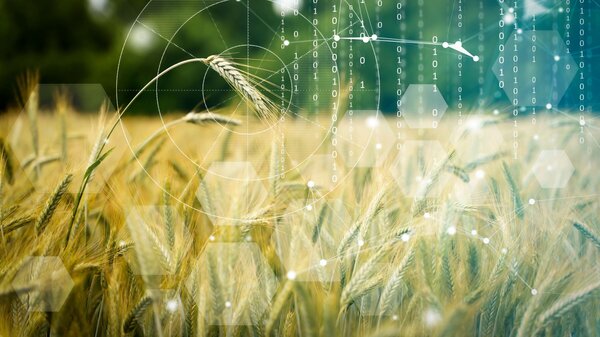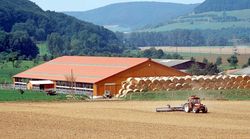Facts & Figures
Income development of organic farms
Heike Kuhnert, Frank Offermann | 14.07.2025
"It's the economy, stupid!" – Bill Clinton's legendary saying also applies to organic farming. Whether farmers invest in their organic farm or conventional farmers consider converting to organic farming depends decisively on what farm income is generated or achievable.
The Thünen Institute of Farm Economics has been analysing the income situation of organic farms participating in the German Farm Accountancy Data Network (FADN) for almost 30 years and publishes the annual results. The analysis includes organic farms that have already been converted and belong to the farm type fieldcrops, dairy, other grazing livestock or mixed farms.
The income situation of the analysed 398 organic farms of the German FADN has worsened slightly compared to the previous year. They achieved an average income of EUR 43,241 (profit plus paid labour costs per annual work unit (AWU)), compared to EUR 45,240 in the previous year. This corresponds to a decrease of EUR 1,999 or 4 percent. The organic fieldcrops farms had the highest income with EUR 56,804 per AWU.
Profit gap is significantly smaller than in the previous year
In the 2023/24 accounting year, the average income of organic farms and the comparable conventional farms was EUR 2,040 per AWU. In the previous year, the gap was historically high at EUR 11,374 in favor of the conventional farms. The convergence in the accounting year 2023/24 is mainly due to the decline in the income of the comparable conventional farms of EUR 11,333 per AWU. This represents a 20 percent drop compared to the previous year.
According to the results, the economic advantage of organic farming over comparable conventional farms has deteriorated in the last two accounting years. This result is also reflected in the fact that the conversion to organic farming in Germany largely stagnated in 2023 and 2024 and, according to Rentenbank's Spring 2025 Agricultural Barometer, only two percent of the surveyed farms are currently planning to convert to organic farming.
It is striking that there are large differences in success within the organic farms. This is evident both between different farm types and within individual farms of the same type.
Further results are described in the report "Analysis of the economic situation of organic farms in the accounting year 2023/24".
Further results on the economic performance of all farms in the German FADN see Farm income.
Download Service
- Presented in detail:Tabular presentation of the economic situation of organic farms (in German)
- To the point: "Analysis of the economic situation of organic farms in the accounting year 2023/24".
Read more
BMEL-Statistik: Buchführungsergebnisse Landwirtschaft (in German)
Wirtschaftliche Lage im Ökolandbau – Interview with Heike Kuhnert on Ökolandbau.de from 17/02/2025 (in German)
Einkommen im Öko-Landbau sind 2021/22 gestiegen – Interview with Heike Kuhnert on Ökolandbau.de from 05/12/2023 (in German)


![[Translate to English:] Farm income](/media/_processed_/2/b/csm_Einkommen_86e6111d32.jpg)






